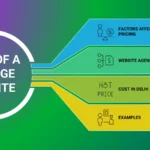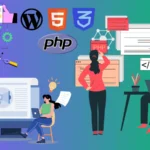In today’s interconnected world, networking has become the backbone of our digital existence. Whether we’re browsing social media, streaming videos, or collaborating on projects, networks play a crucial role in facilitating communication and information exchange. This blog aims to provide a comprehensive overview of networking, from its basic concepts to emerging trends.
Understanding the Basics:
- What is Networking? Networking refers to the practice of connecting computers and other devices to share resources and information. It enables communication between devices, fostering collaboration and data exchange.
- Types of Networks:
- Local Area Network (LAN): Limited to a specific geographic area, like an office or a home.
- Wide Area Network (WAN): Spans a larger geographical area, often connecting multiple LANs.
- Wireless Networks: Utilize radio waves to connect devices without physical cables.
- Cloud Networks: Leverage cloud infrastructure to provide scalable and flexible services.
- Protocols and Standards:
- Transmission Control Protocol (TCP) and Internet Protocol (IP) form the foundation of the internet.
- Other protocols include HTTP (Hypertext Transfer Protocol), FTP (File Transfer Protocol), and DNS (Domain Name System).
Key Components:
- Routers and Switches:
- Routers connect different networks and manage data traffic between them.
- Switches facilitate communication within a single network by directing data to the intended recipient.
- Firewalls:
- Protect networks from unauthorized access and potential security threats.
- Cables and Wireless Technologies:
- Different types of cables (Ethernet, fiber-optic) and wireless technologies (Wi-Fi, Bluetooth) enable connectivity.
Advanced Concepts:
- Virtual Private Networks (VPNs):
- Provide secure communication over the internet by creating an encrypted connection.
- Software-Defined Networking (SDN):
- Enhances network management by separating the control plane from the data plane.
- Internet of Things (IoT):
- The interconnection of everyday devices, creating smart environments and enabling data exchange.
Emerging Trends:
- 5G Technology:
- The fifth generation of mobile networks, offering faster speeds and improved connectivity.
- Edge Computing:
- Processing data closer to the source (edge of the network) for reduced latency and improved efficiency.
- Blockchain in Networking:
- Enhancing security and transparency in network transactions.
Conclusion:
As our reliance on digital connectivity continues to grow, a solid understanding of networking principles becomes increasingly important. From the basics of LANs and WANs to advanced concepts like SDN and IoT, the world of networking is both vast and dynamic. Staying informed about emerging trends ensures that individuals and businesses can navigate the digital landscape effectively, fostering innovation and collaboration in the interconnected era.





